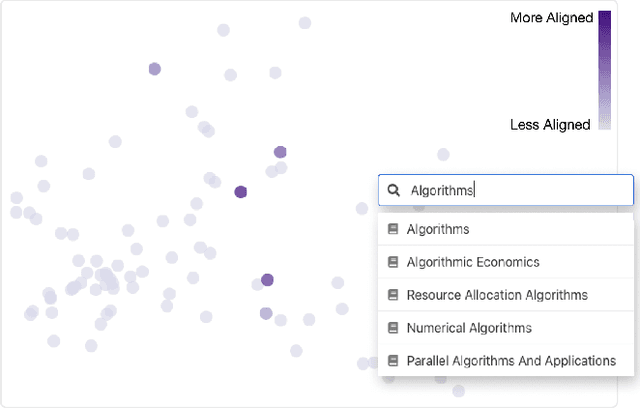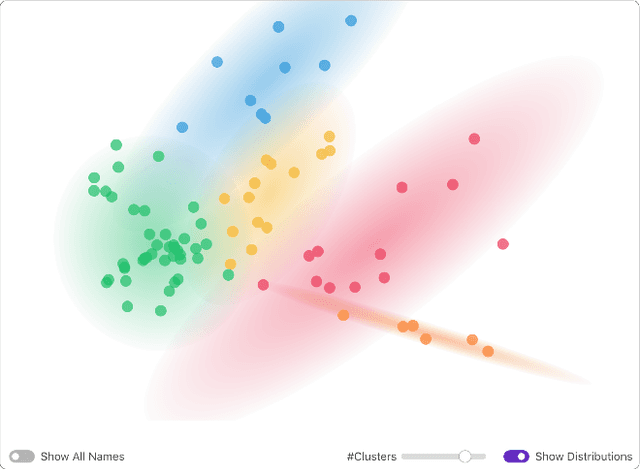Sasha Richardson
Mapping Researchers with PeopleMap
Aug 31, 2020Abstract:Discovering research expertise at universities can be a difficult task. Directories routinely become outdated, and few help in visually summarizing researchers' work or supporting the exploration of shared interests among researchers. This results in lost opportunities for both internal and external entities to discover new connections, nurture research collaboration, and explore the diversity of research. To address this problem, at Georgia Tech, we have been developing PeopleMap, an open-source interactive web-based tool that uses natural language processing (NLP) to create visual maps for researchers based on their research interests and publications. Requiring only the researchers' Google Scholar profiles as input, PeopleMap generates and visualizes embeddings for the researchers, significantly reducing the need for manual curation of publication information. To encourage and facilitate easy adoption and extension of PeopleMap, we have open-sourced it under the permissive MIT license at https://github.com/poloclub/people-map. PeopleMap has received positive feedback and enthusiasm for expanding its adoption across Georgia Tech.
PeopleMap: Visualization Tool for Mapping Out Researchers using Natural Language Processing
Jun 10, 2020

Abstract:Discovering research expertise at institutions can be a difficult task. Manually curated university directories easily become out of date and they often lack the information necessary for understanding a researcher's interests and past work, making it harder to explore the diversity of research at an institution and identify research talents. This results in lost opportunities for both internal and external entities to discover new connections and nurture research collaboration. To solve this problem, we have developed PeopleMap, the first interactive, open-source, web-based tool that visually "maps out" researchers based on their research interests and publications by leveraging embeddings generated by natural language processing (NLP) techniques. PeopleMap provides a new engaging way for institutions to summarize their research talents and for people to discover new connections. The platform is developed with ease-of-use and sustainability in mind. Using only researchers' Google Scholar profiles as input, PeopleMap can be readily adopted by any institution using its publicly-accessible repository and detailed documentation.
 Add to Chrome
Add to Chrome Add to Firefox
Add to Firefox Add to Edge
Add to Edge